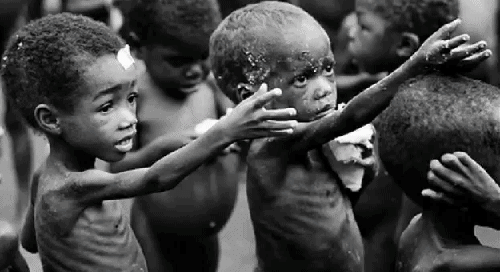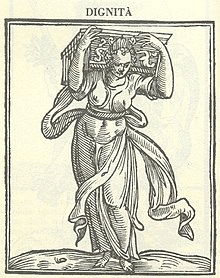Class 9 Civics Chapter 1 Question Answers - Democratic Politics - I
Q1. How can you say that every government that holds an election is not a democracy? Give an example to prove your point.
Ans: Not every government that holds elections is a democracy. In some cases, such as in dictatorships and monarchies, elections may occur, but the true power lies with those who are not elected.
For example:
- In Myanmar, the military rulers were not elected by the people; they seized control without public consent.
- In Chile, dictator Pinochet ruled without being elected by the citizens.
- In Saudi Arabia, the kings govern not through elections but by virtue of their birth into the royal family.
This illustrates that elections alone do not guarantee a democratic system.
Q2. In China, elections are held after every five years. Inspite of this, China does not have a democratic government. Why?
Ans: Regular Elections: Elections in China are held every five years to elect the National People’s Congress (NPC), which is the country’s parliament.
Appointment of President: The NPC has the authority to appoint the President of China.
Composition of NPC: The NPC comprises nearly 3,000 members elected from various regions, including some elected by the army.
Candidate Approval: Candidates must obtain approval from the Chinese Communist Party (CCP) before they can contest elections.
Restrictions on Candidacy: In 2002-03, only CCP members or those from affiliated smaller parties were allowed to run for election.
Dominance of Communist Party: The government is consistently formed by the Communist Party, demonstrating its strong influence in China's political system.
Q3. In which way is the right to vote denied in Saudi Arabia and Fiji?
Ans: In Saudi Arabia: Women are denied the right to vote, highlighting a lack of gender equality in politics.
In Fiji: The electoral system favours indigenous Fijians, diminishing the voting power of Indian Fijians.
Both cases demonstrate a denial of political equality, where specific groups are excluded from equal voting rights based on gender or ethnicity. A fundamental principle of democracy is that every adult citizen should have one vote of equal value, ensuring fairness in the electoral process.
Q4. Why has India never had a famine of the level which occurred in China in 1958-61?
Ans: China's Famine (1958-61): This famine resulted in the deaths of approximately three crore people, marking a severe humanitarian crisis.
India's Economic Condition: During the same period, India's economic situation was similar to China's, yet it did not face a famine of comparable scale.
Difference in Economic Policies: The responses to food shortages in China and India differed significantly due to their economic policies.
Democratic Governance in India: India's democratic government managed the food shortage more effectively than China's authoritarian regime.
Role of Political System: In China, the lack of multi-party elections, an opposition party, and a free press limited effective responses, worsening the famine's impact.
 Fig. Children affected in famine
Fig. Children affected in famine
Q5. ‘Democracy is based on consultation and discussion.’ Explain.
Ans: Democracy is founded on the principles of consultation and discussion, which involve many individuals in the decision-making process.
- Democratic decisions require participation from various people through discussions and meetings.
- This ensures that diverse perspectives are taken into account.
- Collaborative efforts help identify potential mistakes in decisions, leading to improved outcomes.
- Although democratic decision-making can be time-consuming, this investment is beneficial.
- Spending time on significant decisions reduces the risk of hasty or irresponsible choices, thereby enhancing the quality of decision-making.
Q6. Why is it not possible for the people to rule directly but through elected representatives?
Ans: The people cannot rule directly; they must do so through elected representatives for several reasons:
- Large populations: Modern democracies consist of many people, making it physically impossible for everyone to gather and make decisions together.
- Lack of time and skills: Even if it were possible, most citizens do not have the time, desire, or skills to participate in every decision.
Q7. Is it possible for any country to become a perfect democracy? Give reasons.
Ans: No country can be considered a perfect democracy because the ideals of democratic decision-making are never fully realised. Achieving these ideals is an ongoing process that requires:
- Constant effort to maintain and improve democratic practices.
- Active participation from citizens to influence the level of democracy in their country.
This highlights the unique nature of democracy, where the effectiveness of governance depends not only on leaders but also significantly on the actions of the citizens.
Q8. Why is Democracy considered the best form of government? Give three reasons.
Ans: Democracy is widely regarded as the best form of government for several reasons:
- Accountability: In a democracy, leaders are accountable to the people. Citizens have the right to vote out officials who do not perform well.
- Freedom of Speech: Democracy promotes freedom of expression, allowing individuals to share their opinions and engage in public discussions.
- Protection of Rights: The right to life is safeguarded in a democracy, ensuring that individuals are not punished arbitrarily and that authorities follow established laws.
Q9. Explain any three features of democracy.
Ans: Features of Democracy
- Decision-Making Power: In a democracy, the final decision-making power lies with those elected by the people.
- Free and Fair Elections: A democracy must ensure that elections are free and fair, allowing those in power a genuine chance of losing.
- Equal Voting Rights: Every adult citizen has one vote, and each vote carries equal weight.
Q10. Why is Zimbabwe not considered a democratic country?
Ans: Zimbabwe is not considered a democracy because of:
- Single-Party Rule: The ZANU-PF party has governed since independence, with elections often biased in their favour.
- Election Issues: Opposition parties face harassment, protests are banned, and media is controlled, limiting political freedoms.
- onstitutional Changes: Amendments have concentrated power in the President's hands and weakened judicial independence.
- Lack of Political Freedoms: Basic rights like freedom of expression and association are restricted, and the government ignores court rulings against it.
The situation in Zimbabwe highlights the need for respect for citizens' rights and adherence to constitutional limits for genuine democracy.
Q11. How does democracy in a country enhance the dignity of an individual? State three points.
 Fig. Statue of dignity
Fig. Statue of dignity
Ans: Democracy enhances the dignity of individuals in several ways:
- Political Equality: Democracy ensures that all individuals, regardless of wealth or education, are treated equally in society.
- Active Participation: Citizens in a democracy are not just subjects; they actively engage in governance and decision-making.
- Responsibility: In a democratic system, citizens are accountable for their actions, fostering a sense of ownership and responsibility.
Q12. What does ‘one person, one vote, one value’ mean? Name the countries who deny the equal right to vote.
Ans: The principle of one person, one vote, one value is rooted in the concept of universal adult franchise. This means that every adult citizen, regardless of gender, race, religion, or socioeconomic status, has the right to vote and participate in the democratic process.
However, some countries deny equal voting rights:
- Saudi Arabia: Women were not allowed to vote until 2015.
- Estonia: Citizenship rules disadvantage the Russian minority, making it hard for them to obtain voting rights.
- Fiji: The electoral system gives more value to the votes of indigenous Fijians compared to Indian-Fijians.
|
53 videos|437 docs|80 tests
|
FAQs on Class 9 Civics Chapter 1 Question Answers - Democratic Politics - I
| 1. What are the key features of democracy? |  |
| 2. Why is democracy considered important? |  |
| 3. What are the different forms of democracy? |  |
| 4. How does democracy impact social justice? |  |
| 5. What challenges does democracy face today? |  |

|
Explore Courses for Class 9 exam
|

|


















